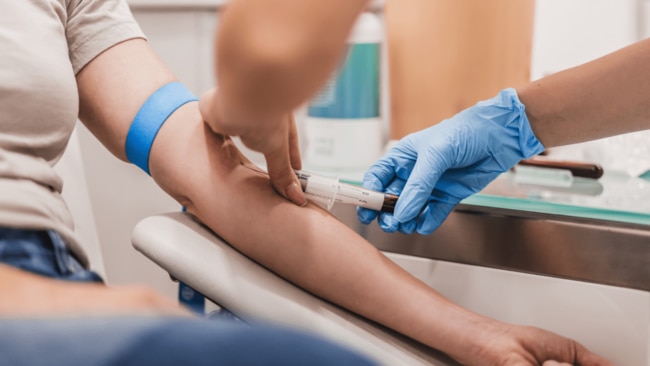This new blood test 'can predict' the return of breast cancer
Better treatment is on the horizon

Cancer
Don't miss out on the headlines from Cancer. Followed categories will be added to My News.
In this article:
Behind the minimally-invasive testing innovation
How this blood test detects traces of cancer years before a standard scan
What this means for breast cancer diagnosis and treatment
A new innovation in breast cancer detection and treatment form the UK could potentially change the lives of countless patients. Here's what you need to know.
From specially designed bras to tests motoring breast milk, research into breast cancer treatment and prevention has had an incredibly eventful past twelve months.
Now, new research in the UK suggests the likelihood of breast cancer resurgence in patients may be able to be predicted with a simple blood test.
Better yet, this specific type of testing may detect traces of cancer years before a standard mammogram would, potentially helping patients begin treatment earlier to ultimately improve the disease’s survival rates.

How the blood test detects cancer
While the research is still in its early stages, nor is it ready to be used in a clinical setting, experts are optimistic about the impact this type of testing could have on patients and their recovery.
Designed by the research team from the Institute of Cancer Research (ICR), London, the testing method was initially trialled on 78 patients with different types of early-stage breast cancer.
From the blood test, researchers performed a ‘liquid biopsy’ on each patient’s sample, searching for over 1,800 mutations in their blood specifically released by cancer cells. Of the women in the trial, 11 were found to possess the cancer mutation in their sample. These same 11 participants each experienced a cancer relapse, while the remaining 67 did not.
While one participant’s cancer was detected a staggering 41 months before a scan confirmed the relapse, on average, the blood test method picked up the presence of mutations roughly 15 months before either a conventional scan or symptoms began to appear.
“Breast cancer cells can remain in the body after surgery and other treatments but there can be so few of these cells that they are undetectable on follow-up scans," explains the project’s lead researcher Dr Isaac Garcia-Murillas.
While not yet in use outside of the study, this blood test detection method lays the groundwork for life-extending treatment and earlier overall detection.

What this breakthrough means
Despite representing centuries of research and innovation, most modern methods of diagnosis and treatment are still unable to guarantee 100 per cent accuracy, making the potential of this blood test incredibly exciting.
"Early detection is one of our greatest weapons against breast cancer and these initial findings, which suggests new tests could be able to detect signs of breast cancer recurrence over a year before symptoms emerge, are incredibly exciting," Dr Simon Vincent, director of research, support and influencing at Breast Cancer Now, tells the BBC.
The earlier treatment is commenced in patients, the more likely it is to be effective in destroying cancer cells before they can spread to other parts of the body.
"With around 11,000 people dying every year in the UK from secondary breast cancer, breakthroughs like these are urgently needed so that we can stop people losing their lives to this devastating disease," Dr Vincent adds.
More Coverage
Originally published as This new blood test 'can predict' the return of breast cancer




